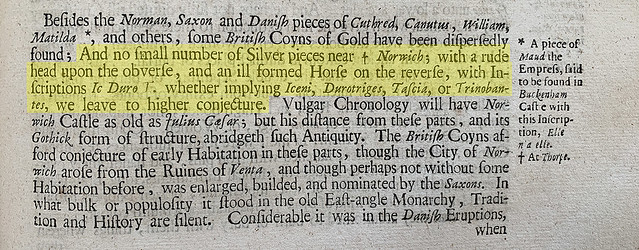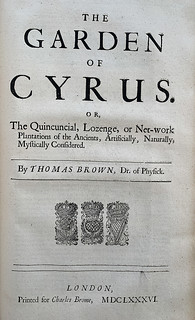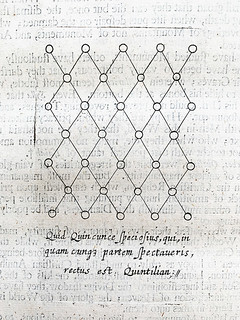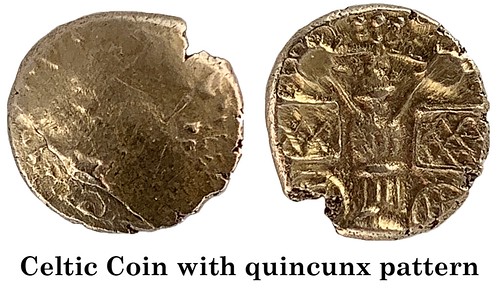
PREV ARTICLE
NEXT ARTICLE
FULL ISSUE
PREV FULL ISSUE
SIR THOMAS BROWNE AND THE QUINCUNX PATTERNLast week's essay on the books of Sir Thomas Browne inspired Bob Van Arsdell to submit these thoughts on Browne and the quincunx pattern as a design element in coinage. Thanks. -Editor  I've known for some time that Sir Thomas Browne had a loyal following of enthusiasts, but I never imagined there would be more than one of us on The E-Sylum. I wonder how many others there are? I'd like to think that his Pseudodoxia Epidemica entitles him to the title: "Father of the Mythbusters". Browne has some numismatic connections worth noting. In the Hydriotaphia, he used finds of Roman coins to date archaeological sites in Britain. He's usually credited with the earliest report of the Cani Duro type of Celtic Coin as well (though the coin he reported didn't carry the full legend).   His Garden of Cyrus never receives the attention it deserves. He pointed out the "quincunx pattern" (a checkerboard of diamonds) as something the human mind was attracted to – something that influences the way people think and and act. He shows how the pattern was used over and over in ancient times. Workers today would recognize this as one of the earliest uses of "Structural Analysis" in archaeology, pre-dating Levi-Strauss by 300 years.  Ancient British coins occasionally show the quincunx as an image element – as on this Kentish gold quarter stater struck about 45-40 BC. The reverse image is adapted from a Roman Denarius of Julius Caesar showing a "trophy of arms". The Celtic die-cutter has loaded the field with boxes and circles filled with quincunx patterns, something not seen on the Roman prototype. This would be a case where numismatists might employ Structural Analysis to study the image and its meaning – and use the idea introduced 350 years ago by Sir Thomas Brown. To read the complete article, see:
 Wayne Homren, Editor The Numismatic Bibliomania Society is a non-profit organization promoting numismatic literature. See our web site at coinbooks.org. To submit items for publication in The E-Sylum, write to the Editor at this address: whomren@gmail.com To subscribe go to: https://my.binhost.com/lists/listinfo/esylum All Rights Reserved. NBS Home Page Contact the NBS webmaster 
|